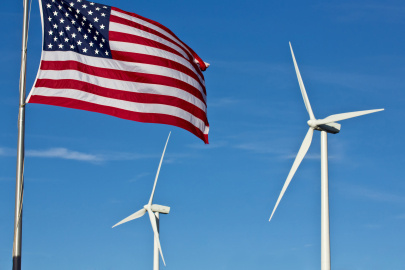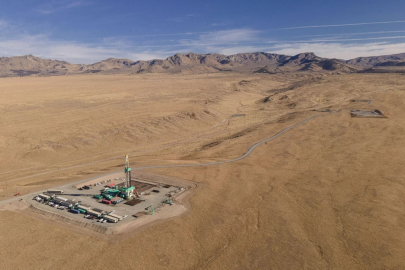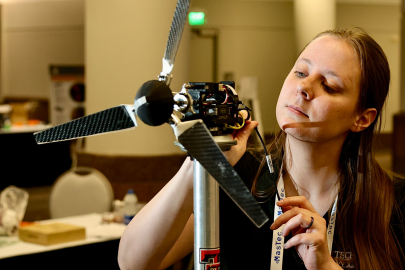-
 EERE is committed to bringing the benefits of energy innovation to every American by making the United States a global leader in renewable energy and energy efficiency technologies.
EERE is committed to bringing the benefits of energy innovation to every American by making the United States a global leader in renewable energy and energy efficiency technologies.
Funding energy innovations creates well-paying jobs, drives economic growth, and makes our industries more competitive. Around 3.5 million Americans already work in renewable energy jobs, and jobs in renewable energy grew at more than twice the rate of the strong overall U.S. labor market in 2023.
How Do Energy Innovations Boost the Economy?
As energy demand increases globally, there has been a rise in demand for renewable energy—leading to new markets and a once-in-a-generation financial opportunity to position the United States as a global leader designing, manufacturing, and deploying renewable energy technologies.
The growing global market for renewable energy technologies and innovations is projected to be worth at least $23 trillion by 2030. Energy innovation keeps America competitive in the global energy market—enabling millions of well-paying, stable jobs, creating a reliable, lower-cost domestic supply chain, and supporting opportunities in communities across the country.
Jobs related to renewable energy generation now employ three times more workers than those associated with traditional energy sources with renewable energy technologies, such as solar panels, wind turbines, hydropower systems, and geothermal systems accounting for more than 84% of net new electricity generation jobs in 2022.
How Do Energy Innovations Lead to More Jobs?
The United States needs millions of well-paying jobs to manufacture and deploy batteries, electric vehicles, wind turbines, solar panels, energy-efficient appliances, biorefineries, and more. Through its targeted funding, workforce-training programs, and technical-assistance initiatives, the U.S. Department of Energy (DOE) is scaling up technologies that will put Americans to work in construction, skilled trades, and engineering. These initiatives will help the U.S. build vital, new infrastructure and ensure that every worker can thrive in the modern energy economy.
DOE is working to:
- Standardize education and training to include innovative energy technologies and help integrate these materials into existing training and education pathways.
- Incentivize applicants for DOE funding to improve the quality and accessibility of jobs and training associated with implementation of their proposed projects and programs.
- Help connect the dots between education, training, entry-level jobs, and long-term careers in the renewable energy sector by aggregating resources at regional scales.
- Support market growth and stability by fostering stable pipelines of energy contracts.
To maximize the positive economic impact of renewable energy, DOE is committed to creating quality jobs that can sustain American families. There are just over 8 million jobs in renewable energy today.
Good Jobs in Renewable Energy
DOE’s Office of Energy Efficiency & Renewable Energy (EERE) is also considering ways to boost the American workforce by supporting nontraditional training partnerships and launching new communities of practice. EERE is expanding outreach at institutions and professional organizations to raise awareness of research and job opportunities.
Learn about EERE's efforts to develop the energy workforce:
Renewable Power
Sustainable Transportation
How To Start Your Renewable Energy Career
The growth of renewable energy has created opportunities for professionals from all industries, trades, and occupations, not just scientists and engineers. Explore opportunities:
Job Creation and Economic Growth News
-
 EERE invests in research, development, and technology-validation to help modernize the American energy system and position the United States to lead the world in the technical fields that will soon dominate the global energy market.January 17, 2025
EERE invests in research, development, and technology-validation to help modernize the American energy system and position the United States to lead the world in the technical fields that will soon dominate the global energy market.January 17, 2025 -
 The 12 finalist teams will compete throughout the spring and present their work during the American Power Association's CLEANPOWER 2025 Conference and Exhibition.January 17, 2025
The 12 finalist teams will compete throughout the spring and present their work during the American Power Association's CLEANPOWER 2025 Conference and Exhibition.January 17, 2025

